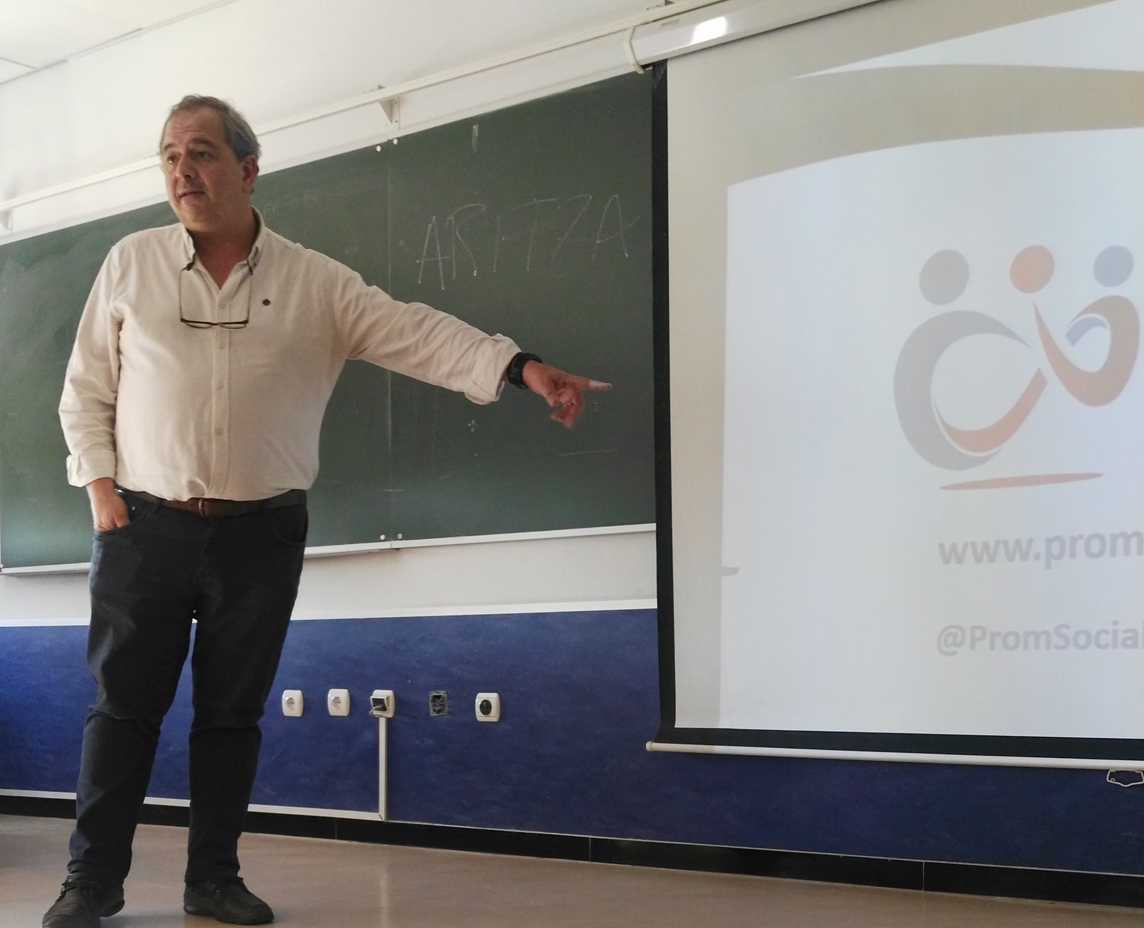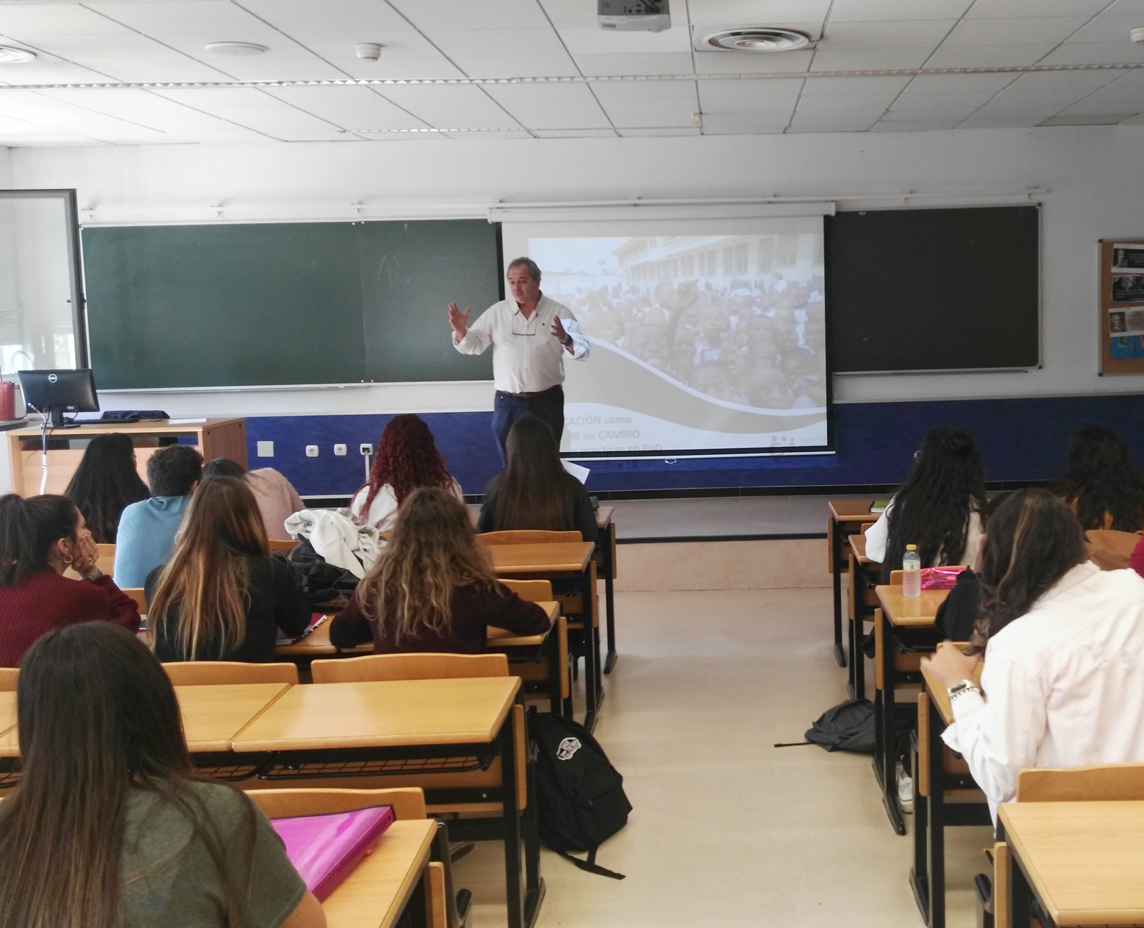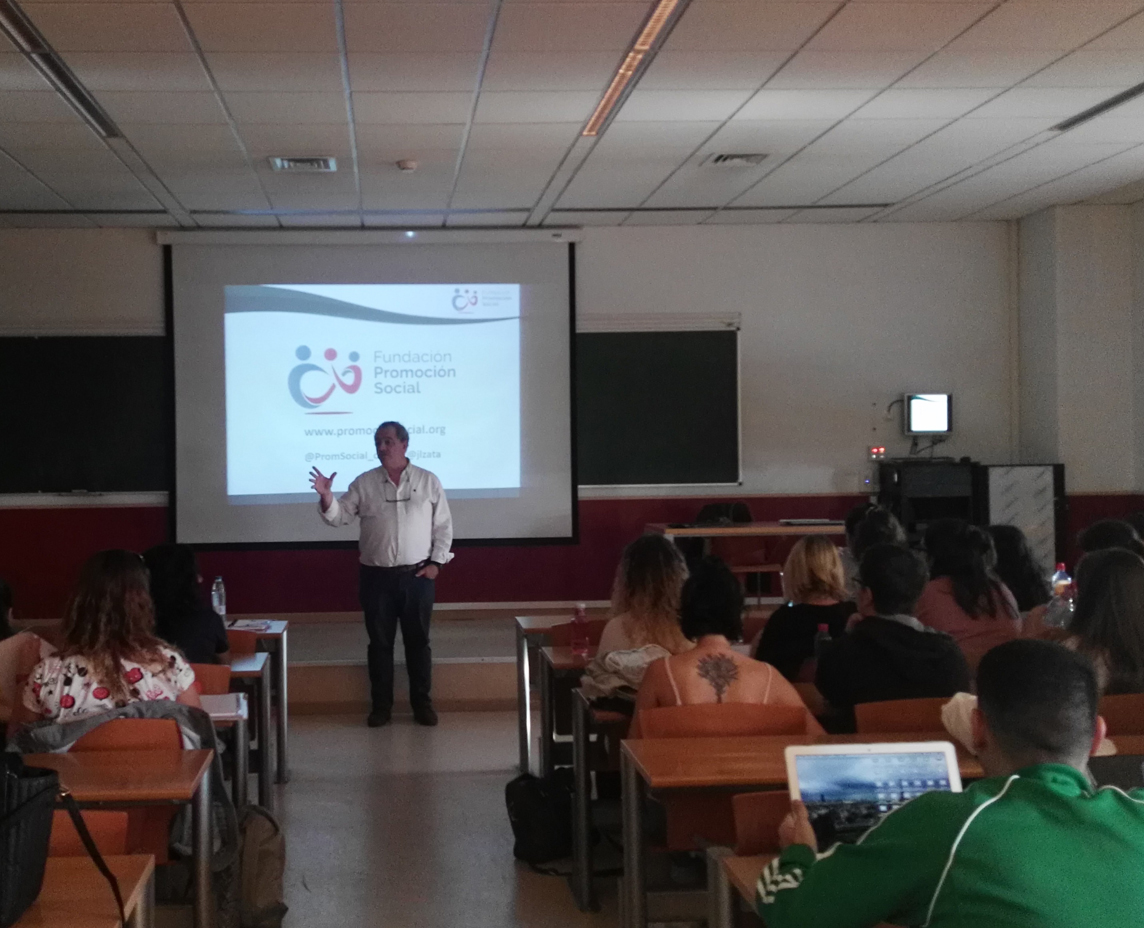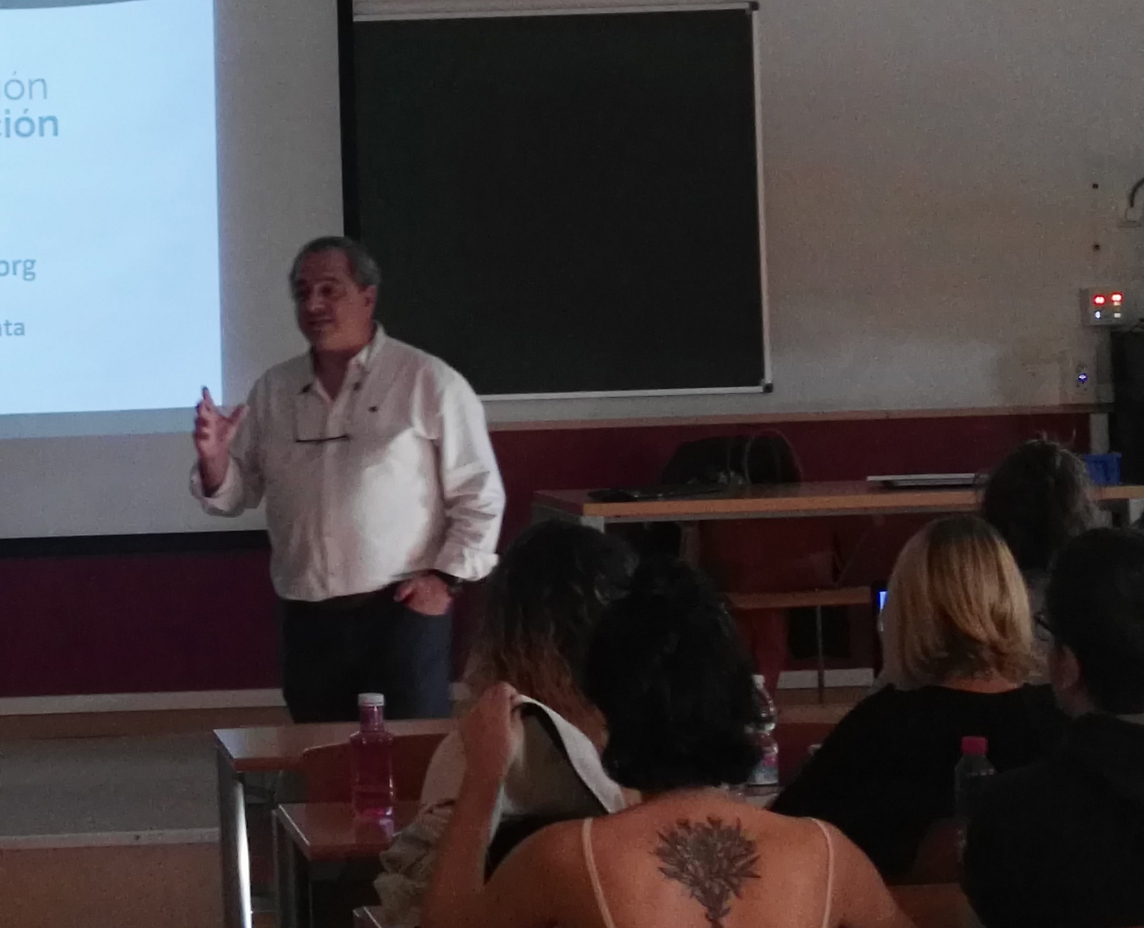Last Tuesday, October 23, we offered a double awareness session dedicated to formal and non-formal education within the framework of work in cooperation for development and humanitarian aid projects of our NGO, as part of the Education for Development activity of Social Promotion, in the campuses of Fuenlabrada and Móstoles of the URJC, with students of Degree of Infantile and Primary Education.
The two sessions were conducted by José Luis Zatarain, Director of Communication and Volunteering of the Foundation.
The first part of each session, which at all times was open to participation and dialogue, was devoted to the subject of education and was articulated with information on different projects of the Foundation.
Thus, the issue of raising awareness about SDGs was addressed and, in particular, the example was given of how, within the framework of the activity of the “Sustainable and equitable rural development in the West Bank” agreement, funded by AECID, awareness-raising work has been carried out on the Human Right to Water (SDG6) as a threshold for other human rights and on the situation in Palestine. This activity has been carried out in schools, colleges, and universities and through the edition and later use of teaching materials.
During the sessions, the importance of formal education was also highlighted, through the inclusion of children with disabilities in Lebanese public schools, and non-formal, through the implementation of inclusive activities among the Syrian refugee population with disability in Lebanon and Jordan.
Within the framework of the MADAD Project funded by the European Union “Reducing economic barriers to access health services in Lebanon (REBAHS Lebanon)” there are two fundamental components, providing awareness sessions in the camps to refugees and vulnerable local population, fundamental for making contact with them, the detection of psychosocial care needs for mental health problems and the subsequent referral if necessary to the mental health clinic of the Social Promotion Foundation in Zahle (Bekaa Valley); and the training of NGO humanitarian personnel in crisis management in mental health (identification, care and referral) and first psychological help.
Examples of good practices were offered in educational environments such as the Social Radio Project at the CEIP San Miguel del Barrio UVA in Hortaleza managed by primary school students, the solidarity initiative of the IES Las Veredillas de Torrejón that was born from the idea of some teachers, starting from an awareness-raising activity of the Foundation, organizing a solidarity market at the parties of the institute and resulting in the involvement and participation of the entire educational community, or the URJC organization of a workshop on social educational innovation and the social impact Education for Human Rights, which was held in the auditorium of the campus of Fuenlabrada and had the participation of three NGOs working in this field: Rescate, Red Acoge and Social Promotion Foundation, which was aimed at students of Teaching.
It was a great experience that put in value the motivation, the restlessness and the high interest of the students.








